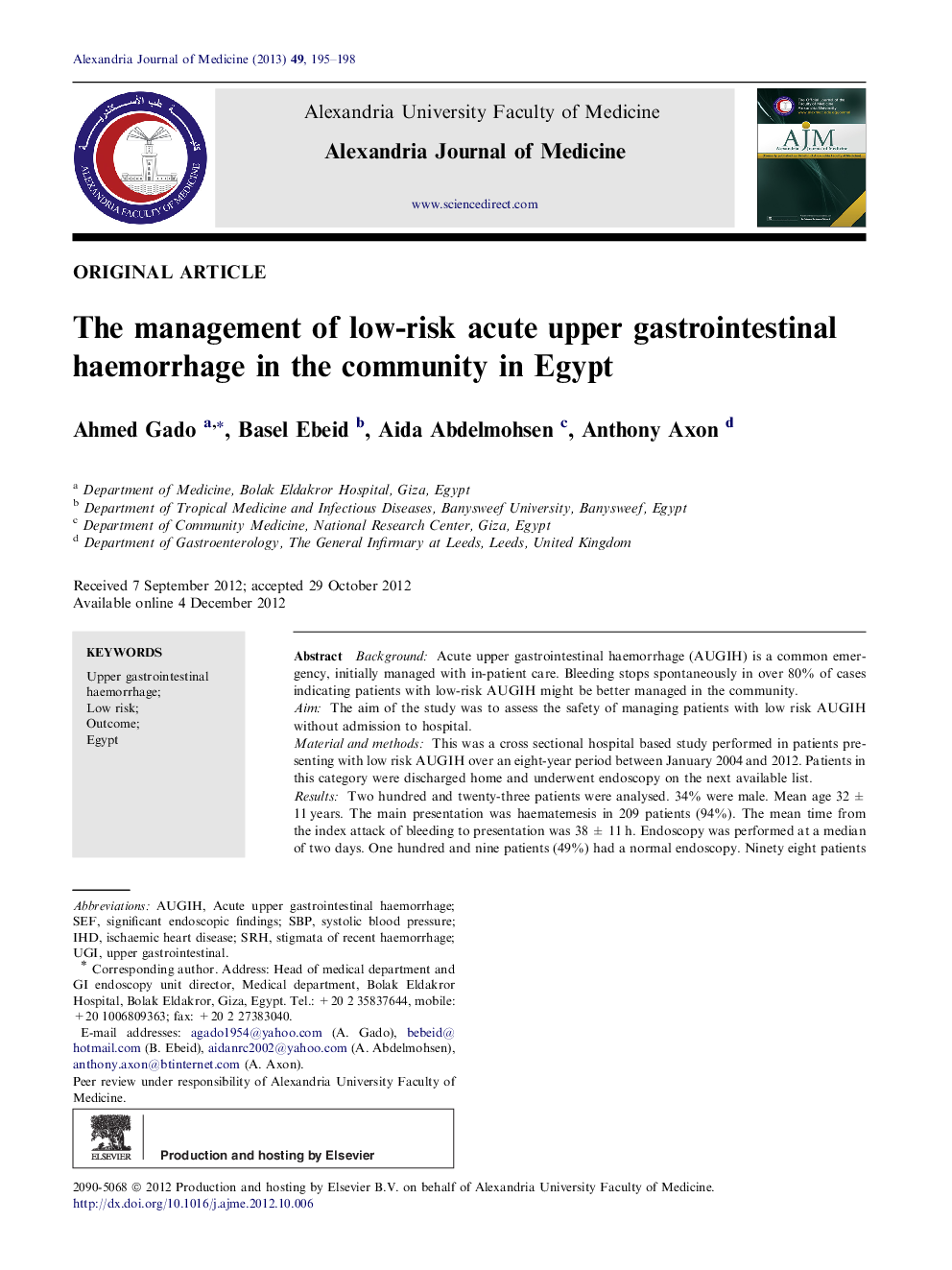| Article ID | Journal | Published Year | Pages | File Type |
|---|---|---|---|---|
| 3431738 | Alexandria Journal of Medicine | 2013 | 4 Pages |
BackgroundAcute upper gastrointestinal haemorrhage (AUGIH) is a common emergency, initially managed with in-patient care. Bleeding stops spontaneously in over 80% of cases indicating patients with low-risk AUGIH might be better managed in the community.AimThe aim of the study was to assess the safety of managing patients with low risk AUGIH without admission to hospital.Material and methodsThis was a cross sectional hospital based study performed in patients presenting with low risk AUGIH over an eight-year period between January 2004 and 2012. Patients in this category were discharged home and underwent endoscopy on the next available list.ResultsTwo hundred and twenty-three patients were analysed. 34% were male. Mean age 32 ± 11 years. The main presentation was haematemesis in 209 patients (94%). The mean time from the index attack of bleeding to presentation was 38 ± 11 h. Endoscopy was performed at a median of two days. One hundred and nine patients (49%) had a normal endoscopy. Ninety eight patients (44%) had significant endoscopic findings (SEF) (peptic ulcer, mucosal erosions, oesophagitis, ectasias, Mallory-Weiss tear and mass). SEF were related to age (P= 0.01). SEF were reported in 61 patients (62%) ⩾30 years and 37 patients (38%) <30 years. One patient (0.5%) rebled. No patient required endoscopic intervention or emergency surgery. The 15-day mortality was nil.ConclusionPatients with low risk AUGIH can be safely managed in the community. Reduction of admissions for such patients allows more appropriate use of in-patient resources with consequent financial savings. Patients with low risk AUGIH should however undergo endoscopy because it often reveals SEF.
